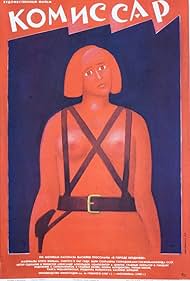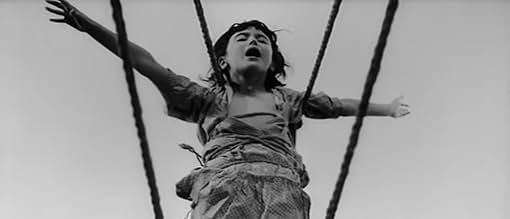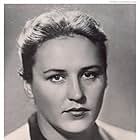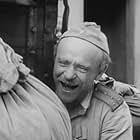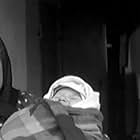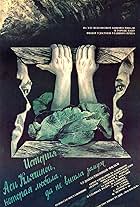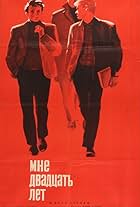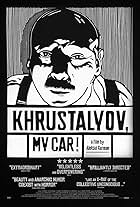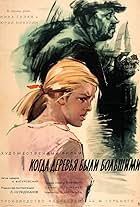IMDb RATING
7.5/10
1.7K
YOUR RATING
Klavdia Vavilova, a Red Army cavalry commissar, is waylaid by an unexpected pregnancy. She stays with a Jewish family to give birth and is softened somewhat by the experience of family life.Klavdia Vavilova, a Red Army cavalry commissar, is waylaid by an unexpected pregnancy. She stays with a Jewish family to give birth and is softened somewhat by the experience of family life.Klavdia Vavilova, a Red Army cavalry commissar, is waylaid by an unexpected pregnancy. She stays with a Jewish family to give birth and is softened somewhat by the experience of family life.
- Awards
- 9 wins & 4 nominations
Lyubov Kats
- Children
- (as Lyuba Kats)
Pavel Levin
- Children
- (as Pavlik Levin)
Dmitri Kleyman
- Children
- (as Dima Kleyman)
Leonid Reutov
- Chief of Staff
- (as L. Reutov)
Viktor Ilichyov
- Appearing
- (uncredited)
Semen Morosov
- Appearing
- (uncredited)
- Director
- Writers
- All cast & crew
- Production, box office & more at IMDbPro
Storyline
Did you know
- TriviaAfter making the film, Aleksandr Askoldov lost his job, was expelled from the Communist Party, charged with social parasitism, exiled from Moscow, and banned from working on feature films for life. He was told that the single copy of the film had been destroyed. Mordyukova and Bykov, major Soviet movie stars, had to plead with the authorities to spare him of even bigger charges. The film was shelved by the KGB for twenty years.
- ConnectionsFeatured in Women Filmmakers in Russia (1988)
Featured review
I was surprised to hear that "Komissar" was filmed in 1967, a year when the USSR was already firmly past Kruschev's thaw and entering the repressive Brezhnev era, because there is something very "thawish" about this film. The general criticism of war, the dignity of ordinary people during a time of calamities, and the juxtaposition of battles with moments of civilian life, all hearken back to the ideas expressed in "The Cranes are Flying" (1956). As in all Soviet cinema, many of the central ideas are expressed through symbolism. This makes the film somewhat difficult for viewers who are not used to this style, but most people tend to find it refreshing and psychologically stimulating. It certainly prompts more post-film discussions than current American cinema that simply shoves the director's point of view down the audience's throat.
Some of the themes that I found particularly interesting were: the use of the innocence of children to depict the horror of war, the image of saddled horses without riders galloping into battle, and, of course, the father dancing in the midst of a bomb raid. Most of all, I thought that the change in Vavilova - going from a rough, battle hardened Red Army officer to a nurturing mother, is the most poignant aspect of this film. The scene where Vavilova is hunted my soldiers for having a child mimics her own persecution of a man who leaves the army to be with his beloved. The soldiers turn out to be figments of her imagination, but the point is obvious. However, Vavilova's decision in the end of the film (which I will not reveal for fear of getting blacklisted by the IMDb NKVD) is puzzling in light of the changes in her character. I suppose that Askoldov's opinion that a person's nature cannot be changed by one experience is contrary to my own optimism. Still, I find the end to be somewhat unrealistic.
Some of the themes that I found particularly interesting were: the use of the innocence of children to depict the horror of war, the image of saddled horses without riders galloping into battle, and, of course, the father dancing in the midst of a bomb raid. Most of all, I thought that the change in Vavilova - going from a rough, battle hardened Red Army officer to a nurturing mother, is the most poignant aspect of this film. The scene where Vavilova is hunted my soldiers for having a child mimics her own persecution of a man who leaves the army to be with his beloved. The soldiers turn out to be figments of her imagination, but the point is obvious. However, Vavilova's decision in the end of the film (which I will not reveal for fear of getting blacklisted by the IMDb NKVD) is puzzling in light of the changes in her character. I suppose that Askoldov's opinion that a person's nature cannot be changed by one experience is contrary to my own optimism. Still, I find the end to be somewhat unrealistic.
- edmontdantes
- Oct 31, 2008
- Permalink
- How long is The Commissar?Powered by Alexa
Details
Box office
- Gross US & Canada
- $388,029
- Runtime1 hour 50 minutes
- Color
- Sound mix
- Aspect ratio
- 2.35 : 1
Contribute to this page
Suggest an edit or add missing content

